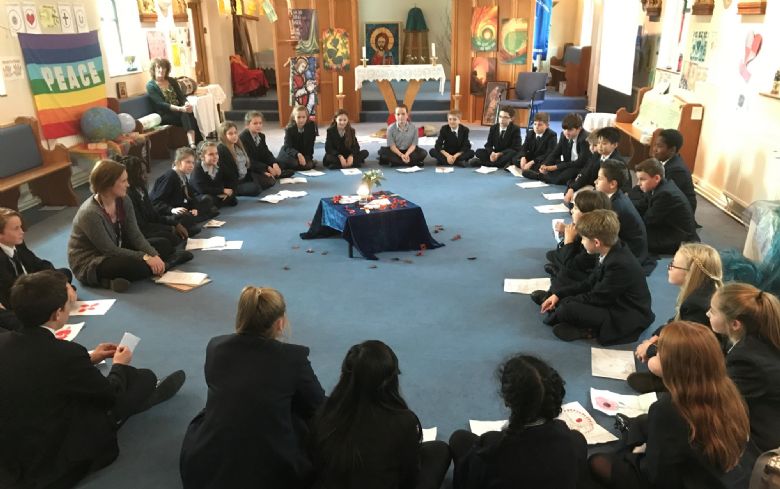Department: Religious Education
Head of Department: Mrs D Palfreyman
If you wish to learn more about the curriculum, please contact the Head of Department by email: d.palfreyman@oaklandscatholicschool.org
If you wish to learn more about the curriculum, please contact the Head of Department by email: d.palfreyman@oaklandscatholicschool.org
The aim of the curriculum within the department at Oaklands is to:
We aim at deepening young people’s knowledge, understanding and effective appreciation of the Catholic faith tradition, of other religions and of contemporary religious moral and philosophical issues. Our curriculum is coherently planned and builds upon the ‘God Matters’ programme used by Portsmouth Diocesan schools at Key Stage 2, developing increasingly detailed and varied knowledge about a range of traditions and faiths, including the Christian, Sikh, Muslim and Jewish faiths. We also recognise that some students have experienced a different curriculum at Key Stage 2, prior to Oaklands, especially if they come from a non-Catholic feeder school, and therefore core Christian beliefs and practices as well as essential thinking skills are taught early in the Key Stage 3 curriculum.
Our curriculum is designed to build a student’s cultural capital, for example at Key Stage 3 students study the Sikh and Muslim faiths and Judaism at Key Stage 4. This enables them to be knowledgeable and tolerant members of an increasingly diverse 21st century society. Use of case studies from a range of cultures, historical periods and perspectives is an ongoing feature of learning in Religious Education. Moreover, they are regularly invited to share their opinions on ethical issues which in turn helps provide students with the cultural capital they need to succeed later in life.
Religious education is specifically concerned with informing young people about religion so that they will be in a better position to assess what religion and personal faith might contribute to their lives. As students move through each Key Stage they will grow in independence; students will increasingly, over time, develop an objective, empathetic and critical study of religion that can be actioned in their lives and interaction with others.
Updated August 24
